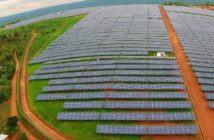 Personal Notes : An engaged piece by Michael Lynch,president and director of global petroleum service at Strategic Energy & Economic Research and ex president of the United States Association for Energy Economics (1999). You might be interested in reading alsoAfrica, The Blackout Continent.
Personal Notes : An engaged piece by Michael Lynch,president and director of global petroleum service at Strategic Energy & Economic Research and ex president of the United States Association for Energy Economics (1999). You might be interested in reading alsoAfrica, The Blackout Continent.
There is an ongoing debate about the apparently contradictory goals of controlling carbon emissions and alleviating energy poverty, with the developed world focused on the former, and the developing world the latter. Many NGOs have weighed in by proposing the provision of low-carbon emission technologies like solar power for the energy poor, criticizing efforts to expand electric power grids as a failed strategy. Unfortunately, the arguments are rarely straightforward and often misleading.
A recent column by Jigar Shah attacked the suggestion that power grids should be expanded in, for example, Africa, to provide electricity to the energy improverished on the grounds that this “failed Africa.” It goes without saying (well, almost) that “failed” is a vague, subjective term: Electricity consumption in Africa has grown at about 4 percent per year for the past two decades. (Shah notes that the analyst he’s criticizing has also written about utilization of oil revenue, which apparently discredits him as biased, as opposed to Shah, the founder of SunEdison, who is presumably unbiased in concluding that solar energy should be the favored solution.)
Unfortunately, he makes a connective leap that might sound good to the general public, but careful examination shows it to be fallacious. He attributes the “biggest barrier” for entrepreneurs to “access to finance” and the fossil fuel industry’s ability to raise capital to “subsidies,” which he notes are $88 billion in the 11 countries with the highest “unelectrified” populations, totaling more than one billion people.
The reality: Fossil fuel industries have access to capital because they provide energy at competitive prices, and solar can’t find financing because they are very expensive and have experienced numerous problems, as the World Bank has noted. (Poor, rural villages are rarely able to repair high-tech energy products and systems, whether solar lamps or complete power plants.)
But the biggest problem with these claims is the implication that fossil fuel subsidies, decried by all, are similar to what the solar industry is asking for. The overwhelming bulk of fossil fuel subsidies represent transfers from governments (and oil companies) to consumers to bring prices far below market levels. The assistance the solar industry seeks would be a transfer from governments (and consumers) to equipment providers to bring prices down to market levels, which is the reverse.
The appeal of solar is obvious: For isolated farms and villages, stand-alone systems like photovoltaics save the cost of connecting to a grid. In fact, a significant amount of solar cells are sold for this purpose even in developed nations with extensive electrical grids. But the other arguments, that this is the technology of the future, that fossil fuel generating plants are “mature” technologies, that distributed power is provided by “entrepreneurs,” are either misleading or irrelevant. Slogans should be left to bumper stickers, and policy proposals should rely on cold, hard facts.
Source : http://www.usnews.com/
Genesis Morocco : http://genesismorocco.blogspot.com
from Genesis Morocco http://genesismorocco.blogspot.com/






